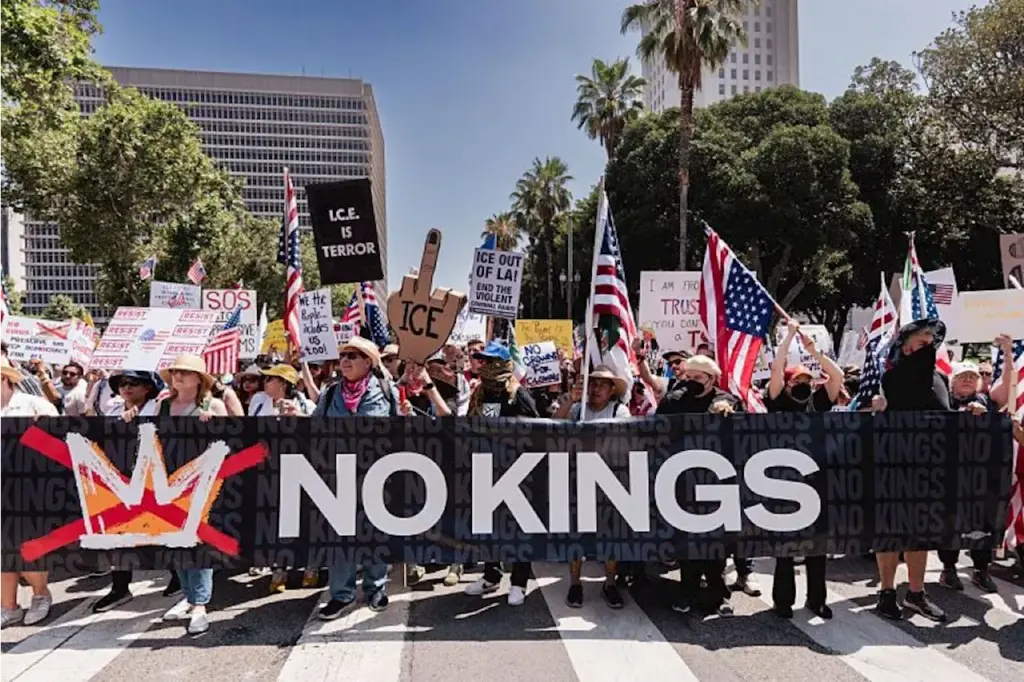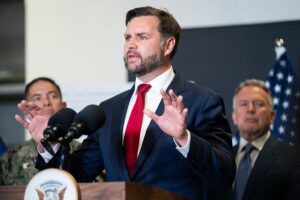
During a recent protest in Chicago, Illinois, a participant at the ‘No Kings’ rally made alarming statements calling for violence against U.S. Immigration and Customs Enforcement (ICE) officers. The protest, which took place over the weekend, saw the individual using a microphone to express a desire for ICE agents to be “shot and wiped out.”
These remarks come in the context of heightened tensions surrounding immigration enforcement in the United States. The protester, who has been identified as an employee at Wilbur Wright College, urged for the dismantling of what they described as the “same machinery” responsible for enforcing immigration laws. The comments drew immediate backlash, particularly given the recent assassination of Charlie Kirk, founder of Turning Point USA, during an event in Utah.
The Department of Homeland Security (DHS) responded to the protester’s statements, emphasizing the seriousness of threats against law enforcement. A spokesperson for the DHS stated, “To those who threaten violence against us: we will hunt you down, we will find you, and justice will be served.” This strong warning underscores the department’s commitment to ensuring the safety of its officers.
Megan Miller, a representative from the college, condemned the remarks, labelling them a “criminal threat.” She expressed her dismay on social media, stating, “A staff member at Wilbur Wright College is calling for ICE agents to get ‘shot’ and ‘wiped out.’”
The U.S. Department of Justice (DOJ) also issued a statement regarding the protest, highlighting that the department is actively monitoring threats against law enforcement personnel. “The Department is actively tracking these targeted assaults against our law enforcement and will hold offenders accountable to the fullest extent of the law,” a DOJ representative said.
This protest is part of a larger series of nationwide demonstrations against perceived authoritarianism under President Donald Trump. The ‘No Kings’ protests have drawn attention to various social issues, including immigration policies and law enforcement practices. Many participants view these gatherings as a necessary response to what they consider government overreach.
In addition to the Chicago rally, similar protests have occurred across the United States, with demonstrators expressing their opposition to current federal policies. Some local officials have responded to the movement by condemning vandalism associated with the protests and calling for community engagement to address the underlying issues.
The situation remains fluid as law enforcement agencies and government officials continue to respond to the protests and associated threats. The emphasis on accountability for those who incite violence reflects a broader concern for public safety in the context of escalating tensions surrounding immigration enforcement.






